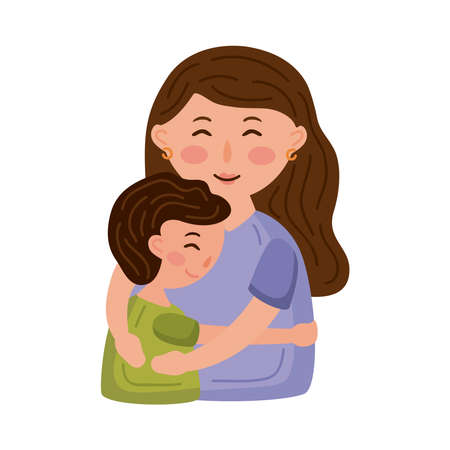Introduction to Playgroups and Social Activities in the UK
In the United Kingdom, playgroups and social activities hold a special place within local communities, serving as a cherished tradition for families with young children. These gatherings are more than just opportunities for babies to play; they are carefully organised spaces where little ones can interact, explore, and develop essential skills while parents form supportive networks. Typically held in community centres, church halls, or even outdoor parks, British playgroups create a welcoming environment for both babies and their caregivers. The emphasis on social interaction and community spirit reflects the broader values of British culture, where early childhood development is nurtured not only at home but also through communal experiences. By participating in these activities, families find a sense of belonging, shared understanding, and encouragement during the formative years of their childs life.
2. The Role of Play in Baby’s Physical Development
Play is a fundamental aspect of early childhood that directly influences a baby’s physical growth and well-being. In the UK, both structured and unstructured play are highly valued for their roles in supporting children’s development, especially when it comes to gross and fine motor skills, coordination, and overall physical health. Understanding the difference between these types of play can help parents and caregivers create a balanced environment that fosters optimal growth.
Structured vs Unstructured Play
Structured play refers to organised activities with specific goals or instructions, often led by adults—think of baby yoga classes, music groups, or organised games at local playgroups. Unstructured play, on the other hand, is more spontaneous and child-led, such as free movement in the park or exploring soft play areas. Both types of play offer unique benefits for physical development:
| Type of Play | Gross Motor Skills | Fine Motor Skills | Coordination | Physical Health |
|---|---|---|---|---|
| Structured Play | Develops balance and large muscle control through guided activities (e.g., crawling tunnels, dancing) | Encourages precise movements (e.g., building blocks, puzzles) | Improves hand-eye coordination through repetitive practice | Promotes regular exercise and healthy routines |
| Unstructured Play | Enhances strength and agility by allowing free exploration (e.g., running on grass, climbing frames) | Sparks creativity in using hands (e.g., picking up leaves, playing with sand) | Builds spatial awareness as children navigate their surroundings | Supports active lifestyles and reduces sedentary habits |
The Early Years Foundation Stage (EYFS) Perspective
In the UK, the Early Years Foundation Stage (EYFS) framework recognises physical development as one of its prime areas. It encourages providers to offer diverse opportunities for babies to move freely and develop control over their bodies. Regular participation in both structured sessions—such as those found at local Sure Start Children’s Centres—and plenty of time for free play are recommended to meet these developmental milestones.
A Balanced Approach for Holistic Growth
A blend of structured and unstructured play supports holistic growth by nurturing not just muscles and coordination but also confidence and curiosity. When babies are given the freedom to explore alongside gentle guidance from adults, they learn to challenge themselves physically within safe boundaries—a key element in fostering lifelong health and well-being.
![]()
3. Benefits of Social Interaction for Babies
Social interaction plays a vital role in a babys early development, particularly within the context of UK playgroups and community activities. When babies engage with peers, they begin to build the foundation for emotional wellbeing by learning to express themselves and respond to others feelings. These early social experiences help little ones develop empathy and resilience, which are crucial for navigating lifes challenges as they grow. Beyond emotional growth, socialisation at playgroups introduces babies to the basics of communication. Through observing and mimicking other children, babies start to understand non-verbal cues, gestures, and simple language patterns. This natural exposure encourages early speech development and helps babies learn how to listen, share, and take turns—important skills for future relationships and educational settings. Learning through peer engagement is another significant benefit of social activities in the UK. Babies are naturally curious and tend to imitate their peers during group play. Whether its trying new movements during a song or exploring sensory toys together, these shared experiences stimulate physical coordination and cognitive abilities. Playgroups provide a safe environment where babies can experiment, make mistakes, and celebrate small achievements with others—fostering both confidence and a lifelong love of learning.
Cultural Aspects of Playgroups in the UK
When considering the physical growth and social development of babies in the UK, it is essential to understand the cultural context in which playgroups operate. British playgroup settings reflect local traditions, community values, and a strong emphasis on outdoor activities, all of which help foster both physical and emotional wellbeing for young children.
Typical British Playgroup Settings
Across the UK, playgroups are often held in accessible, welcoming spaces such as church halls, community centres, or local libraries. These venues serve as hubs for parents and carers to gather while their little ones engage in supervised play. The focus is on creating a safe and stimulating environment where babies can crawl, toddle, and explore under watchful eyes.
Local Customs and Community Spirit
British playgroups are known for their warm sense of community. Many are run by volunteers or local parents who organise weekly sessions that include singing nursery rhymes, storytelling, and snack time featuring traditional treats like fruit slices or oatcakes. Sharing experiences over a cup of tea is just as important for parents as it is for children to make friends and feel supported.
Emphasis on Outdoor Activities
The UK’s love of the outdoors is reflected in many playgroup routines. Even in colder months, babies are wrapped up warmly and encouraged to take part in garden games or nature walks. Outdoor play not only helps develop gross motor skills but also connects little ones with the changing seasons and natural world around them.
Common Features of British Playgroups
| Setting | Activities Offered | Community Involvement |
|---|---|---|
| Community Centres | Sensory play, soft mats, song time | Parent volunteers, fundraising events |
| Church Halls | Crafts, story circles, snack sharing | Shared resources, local networking |
| Parks & Gardens | Nature walks, ball games, sand pits | Outdoor meetups, seasonal celebrations |
This blend of indoor warmth and outdoor adventure is distinctly British and contributes significantly to both the physical growth and overall happiness of babies during these formative years.
5. Supporting Parents: Building Community Through Playgroups
One of the most valuable aspects of playgroups in the UK is their ability to bring parents together, building supportive communities that extend well beyond the weekly meet-up. When new parents attend playgroups, they often find themselves surrounded by others who are navigating similar experiences and challenges. This shared journey creates a safe space where advice and encouragement flow naturally, easing anxieties and boosting confidence in parenting decisions.
Friendships formed at playgroups can be a lifeline, especially during the early months when feelings of isolation are common. Whether it’s swapping tips about weaning or sharing stories about sleepless nights, these interactions help parents feel understood and less alone. Over time, these connections often blossom into lasting relationships, providing both practical support—like babysitting swaps or carpooling to activities—and emotional reassurance through life’s ups and downs.
Playgroups also reflect the diversity of British society, welcoming families from all walks of life. This inclusive environment encourages the sharing of different perspectives and parenting styles, enriching everyone’s experience. Many local groups offer special sessions or resources for dads, grandparents, or families with additional needs, ensuring every parent finds a place where they belong.
For newcomers or those without extended family nearby, playgroups can become an essential source of community spirit. Attending regularly allows parents to build familiarity and trust with others in their area, laying the groundwork for mutual support networks that benefit both adults and children alike. Ultimately, these social ties contribute not only to parents’ wellbeing but also to babies’ healthy development by creating a stable and nurturing environment at home.
6. Tips for Choosing and Getting Involved in Local Playgroups
Finding the Right Playgroup for Your Baby
In the UK, there are a variety of playgroups available, from church-run groups to community-organised sessions and even local library meetups. To begin your search, check community noticeboards, local council websites, health visitor recommendations, or parenting networks like Netmums and Mumsnet. Consider what you want from a playgroup—some focus on free play, while others offer structured activities such as music or sensory play. Visiting a few different groups can help you find the right fit for your baby’s age and personality.
What to Look For in a Playgroup
When choosing a playgroup, look for a welcoming atmosphere where both parents and babies feel comfortable. Observe how staff and volunteers interact with children: Are they attentive and encouraging? Check if the environment is safe and clean, with age-appropriate toys and equipment. It’s also worth considering group size; smaller groups may suit shy babies better, while larger ones offer more social variety.
Making the Most of Social Opportunities
Joining a playgroup isn’t just beneficial for your baby—it’s a wonderful way for parents to build friendships and share experiences. Don’t hesitate to introduce yourself to other parents; many are keen to connect and support each other through the ups and downs of early parenthood. Participate in group activities, volunteer to help with sessions, or even suggest new ideas that could benefit everyone.
Staying Consistent and Open-Minded
Consistency is key for little ones adapting to new environments. Try to attend regularly so your baby can become familiar with faces and routines. Be open-minded—sometimes it takes a few visits before you see real benefits. If one group doesn’t suit your needs, don’t be discouraged; every family is unique, and there’s likely another group nearby that’s a better match.
Nurturing Wellbeing Through Community Support
Remember that attending playgroups is not just about entertainment; it plays an essential role in supporting your baby’s physical development through active play and interaction. For parents, these gatherings offer emotional nourishment—an opportunity to share worries, swap tips about feeding or sleep, or simply enjoy a cuppa together. In the UK, this sense of community is cherished as part of raising happy, healthy children.
By taking an active role in local playgroups, you’re helping lay strong foundations for your baby’s growth while enriching your own parenting journey in the heart of British family life.


